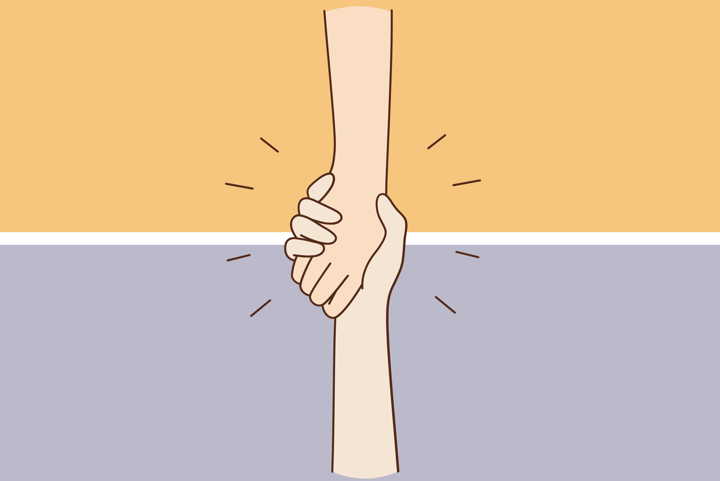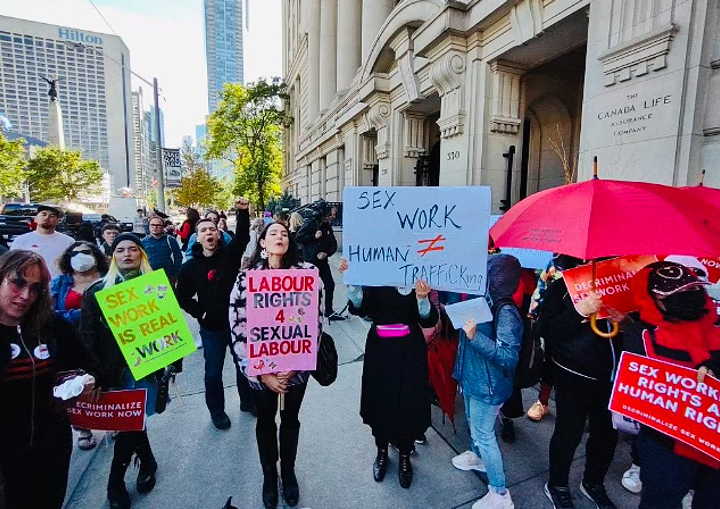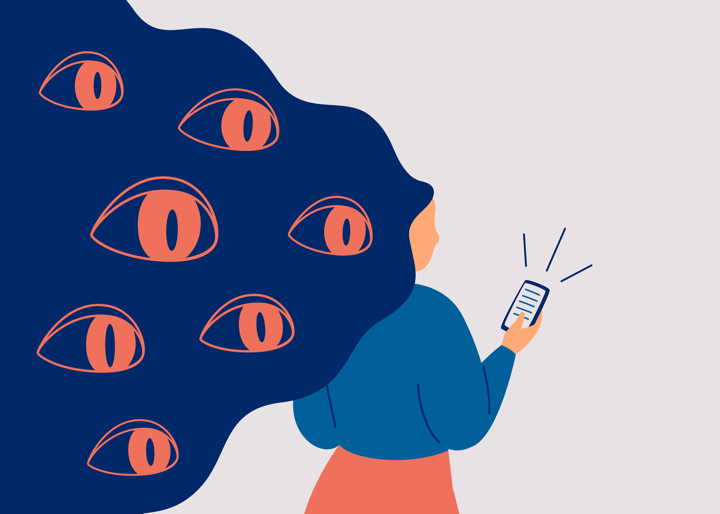October 8, 2022
What is harm reduction?
Harm reduction is a unique framework that aims to minimize the negative consequences associated with criminalized activities, such as drug use or sex work.
Instead of focusing on the prevention of or abstinence from these activities, which tends to be unrealistic, harm reduction works to make the activities themselves as safe as possible.
When it comes to sex work, harm reduction prioritizes the safety, dignity, rights, and autonomy of sex workers instead of arresting them.
Applying the principles of harm reduction to sex work looks like …
* Accepting that sex work is part of our world. Sex work exists. It has always existed and will always exist. No amount of criminalization or law enforcement will change that. Part of harm reduction means choosing not to ignore this reality or condemn those who participate.
* Recognizing sex work as a legitimate occupation. Sex work exists on a spectrum of choice and circumstance, and one can’t assume that every sex worker needs to be “saved” from their line of work. Sex workers rely on their work to earn a living, and just as with any other job, they deserve access to safe working conditions.
* Establishing quality of individual and community life as criteria for success. A vast majority of current legislation exists with the objective of abolishing sex work. Apart from being entirely unrealistic, this is neither a sustainable nor ethical solution for those involved.
Harm Reduction’s goal is to ensure the safety, health, and general well-being of sex workers and their communities.
* Calling for non-judgemental, non-coercive services and resources for sex workers. In order to practice their jobs safely, sex workers require unrestriced access to resources such as condoms, contraceptives, and medical services with no strings attatched. These resources should come with no fear of harassment or legal persecution, so legislation such as mandatory testing, the use of condoms as legal evidence, and mandatory disclosure of sexual history or history with prostitution on visa applications must be banned.
* Ensuring that sex workers have a real voice in policy creation. Nobody knows what’s best for sex workers more than sex workers themselves. True harm reductive allyship centers the voices of sex workers in everything it does. From public outreach to legislative development, allies must work with sex workers, not above them.
* Affirming sex workers as primary agents of their own harm reduction. There’s a very common misconception that all sex workers are victims of tragedy who must be saved. To believe this is to invalidate sex work as an occupation. Sex workers deserve the autonomy to decide how they want to earn a living and whether or not they want to accept resources from anyone else. Everything must happen on their terms.
* Recognizing that the realities of poverty, class, racism, gender, sexual-orientation, and other social inequalities affect sex work. The lives and occupational hazards of sex workers are affected by their identities. This could look like racial discrimination, homophobic violence, transphobia, misogyny, and more. These injustices are often enacted by law enforcement itself. Harm reduction aims to eradicate bigotry in all forms.
* Knowing the difference between sex work and human trafficking. Consensual adult sex work is exactly that. The exchange of sex for payment between consenting adults. Trafficking, on the other hand, involves force, fraud, and coercion. These are two entirely different situations, and to conflate them is dangerous. Those who participate in sex work should always do so on their own terms.
The only way to reduce the harms currently associated with sex work is to fully decriminalize it. Decriminalization ensures the safety and consent of sex workers by creating an environment where they can practice on their own terms.
Decriminalization has always been a core principle of the harm reduction movement, and is currently supported by the National Harm Reduction Coalition.
Visit their website to learn more about the intersection of harm reduction and sex work.

DSW Newsletter #41 (October 2022)
Canadian Sex Workers Are Making History

Harm Reduction and Sex Work

SESTA/FOSTA Explained

DSW Presents at the National Harm Reduction Coalition’s Biennial Conference

